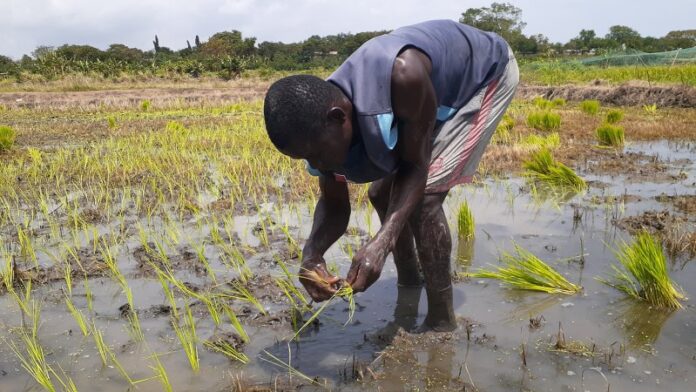He said that the institution would bring justice to the people of Akatsi South and the surrounding areas. During a courtesy call to the Akatsi South Municipal Assembly, Justice Anin Yeboah made these observations.
He asked the Assembly’s management to finish the project as soon as possible so that the Judicial Services might be used in the area. He praised Mr. Joseph Horgle, a local businessman, for providing furnishings to help outfit the new Court. The Municipal Chief Executive (MCE) for Akatsi South, Mr Martin Kofitsey Nyahe, expressed gratitude to the Chief Justice for the tour.
He stated that the Assembly would look into all options to complete the remaining work on the new Court project as soon as possible.
- B-BOVID Ticks All the Boxes on Climate Change Adaptability, Food Security, and Youth Employment
- Ghana-Hungary must strengthen collaboration in agriculture
The three universities, namely the University of Cape Coast, the University of Development Studies in Tamale, and the University of Ghana, are collaborating with the PFAG to host a week-long training workshop on the “Political Economy of Food and Agriculture” that began in Accra and will be attended by close to 30 people from across the country.
Dr Charles Kwowe Nyaaba, Head of Programmes and Advocacy, PFAG, told the Ghana News Agency in an interview that the issue of food and agriculture production had been a global concern because of increasing populations, which needed to be given much attention.
He said, PFAG, having realised that agriculture production was low and that policies of food and agriculture were being made without getting inputs from the peasant farmers while researchers also conducted researches without connecting the issues with farmers, decided to together with the four universities, design an innovative approach to making policy recommendation by connecting activists with researchers to give them the training to understand the political economy of food and agriculture.
“By the end of the training, what we want to do is to select some few of the activists and the early career researchers, to do a joint research that will consider the factors that are going to be explained here in terms of the agrarian economy, history of the peasant, the capitalist approach to things, among others.
So if they understand this, together with the activists, they will be able to design methodology that will actually consider the inputs of the real issues of the farmers and come out with research findings that will make informed recommendation to policy makers and address the real concerns of farmers’ Dr Nyaaba said.
He said after the week’s training, a number of the participants would be selected to partner the lead researchers to collect data on the field that to be used to engage policy makers, towards the improvement of food production in the country.
Madam Victoria Adongo, Executive Director, PFAG, said the plight of peasant farmers now who were earlier called subsistence farmers, although not the best, had improved over the years, due to the various advocacies and support provided by food activists including her organisation and Oxfam.
She said from the day of the Structural Adjustment Programme introduced in the early 1980s by the state, the small holder farmers had continued to live below the poverty line because of the many factors militating against their livelihood.
She said thankfully, various collaborations with national and international partners were yielding favourable results and improving the lot of farmers, adding that the ongoing workshop would be a booster to food security.
Professor Anne Tallontire, University of Leeds, Project Principal Investigator, said her institution was collaborating with PFAG under the “Farmers perspectives on Challenges in the food system”: a Collaborative research partnership with Ghana and Tanzania.
She said the training would help articulate the voices of peasant farmers in research, as well as getting participants to understand issues from the critical political and economic perspectives.
“Together, we will nurture the next generation of Ghanaian and Tanzania food and farming scholars and experts using tools for applied food systems research on topics that matter for farmers’ organisation. We will support them in delivering pilot project co-designed with the farmers organisations, ”she said.

